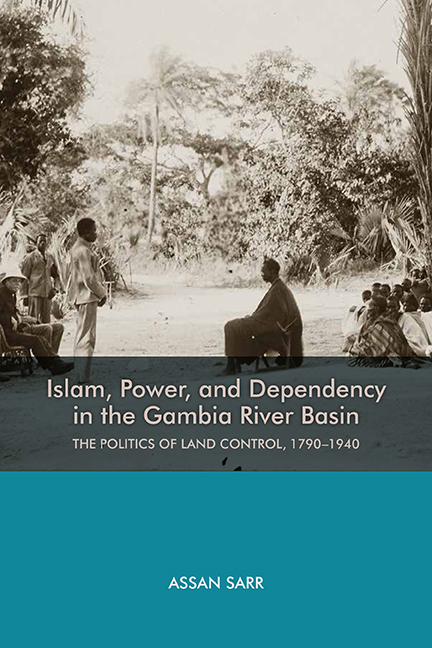Book contents
3 - The Power of the Wild Spirits
from Part 1 - The Period of Uncontested Soninke Dominance
Published online by Cambridge University Press: 26 April 2018
Summary
Senegambia: A Region of Cultural Diversity
Greater Senegambia, the region between the Senegal River to the north and present-day Guinea to the south, has long held a variety of people, coming from different places and holding varied beliefs. Although the region was characterized by great cultural diversity, there was a constant mixture of peoples. Helping them live together were shared assumptions and cultural practices. Among these were basic beliefs in social hierarchies, polygyny, and lineage solidarity. But as important as any of these was a belief in spirits. For most Senegambians, spirits were involved, for good or bad, in such important activities as protecting oneself and one's family, or producing offspring and enough food to keep them fed. Such spirits, people believed, lived in large trees, in rocks, in uniquely shaped termite mounds, in certain swamps or bodies of water, or elsewhere, and they owned some portion of the land. If humans wanted to settle on the lands owned by the spirits and have any chance at prospering on it, they had to deal with the potentially malicious ones. Such dealings required people with powerful resources. In most societies, these were either hunters, blacksmiths, or religious leaders.
In 1821 the Methodist missionary John Morgan arrived in the Gambia to spread Christianity. He observed, “Neither kings nor people seemed to have inherited anything…. For hundreds of miles a tree planted by a native for ornament or utility was not to be seen.” But Morgan observed that people owned cattle, slaves, and wives. Like other early European observers of Senegambian societies, Morgan did not pay a great deal of attention to African ideas of land, perhaps because such Europeans seldom stayed on the land long enough to consider acquiring any of their own. As he looked around, it probably appeared to him that African populations were small and land was abundant. Thus, perhaps he reasoned, with plenty of land for any use, Africans did not bother over notions of who owned what parcel. But African attitudes toward the land were influenced by more than the size of population or the material value attached to the land.
- Type
- Chapter
- Information
- Islam, Power, and Dependency in the Gambia River BasinThe Politics of Land Control, 1790–1940, pp. 84 - 110Publisher: Boydell & BrewerPrint publication year: 2016



